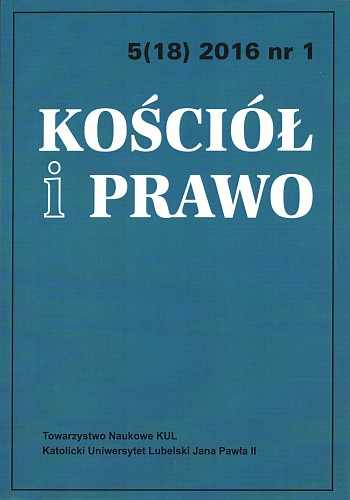Prowizja kanoniczna na urząd proboszcza
The Canonical Provision of the Office of the Pastor
Author(s): Radosław WnukSubject(s): Christian Theology and Religion, Law, Constitution, Jurisprudence, Theology and Religion, Canon Law / Church Law
Published by: Towarzystwo Naukowe KUL & Katolicki Uniwersytet Lubelski Jana Pawła II
Keywords: free conferral; subsidiary provision; designation of the person; conferral; installation
Summary/Abstract: The canonical provision of the office of the pastor is a juridical act. There are two forms of it in the Code of Canon Law: autonomous and subsidiary. The second is concerned with clerical institutes of consecrated life and societies of apostolic life (can. 523; 682 § 1). The legislator has set particular requirements for canonical provision. In principle, the diocesan bishop is competent to do it (can. 523; 525). A candidate to the office must be in the communion of the Church (can. 149 § 1), have the sacred order of the presbyterate and must be endowed with the qualities mentioned in can. 521. For validity of the provision it is necessary for the office to be vacant (can. 153). The provision is composed of three acts: the designation of the person, conferral, and installation. The designation of the person is made: free (autonomous provision), or through presentation or election (subsidiary provision). Depending on the kind of provision, conferral can be free or necessary. Real acquisition of pastor’s competency proceeds after installation. The provision of an office which entails the care of souls is not to be deferred without grave cause (can. 151). Moreover, the provision is to be put in writing for evidence (can. 156).
Journal: Kościół i Prawo
- Issue Year: 5/2016
- Issue No: 1
- Page Range: 95-117
- Page Count: 23
- Language: Polish

